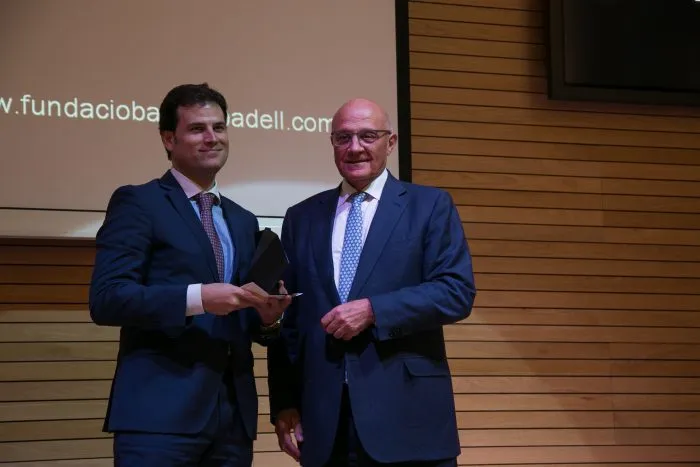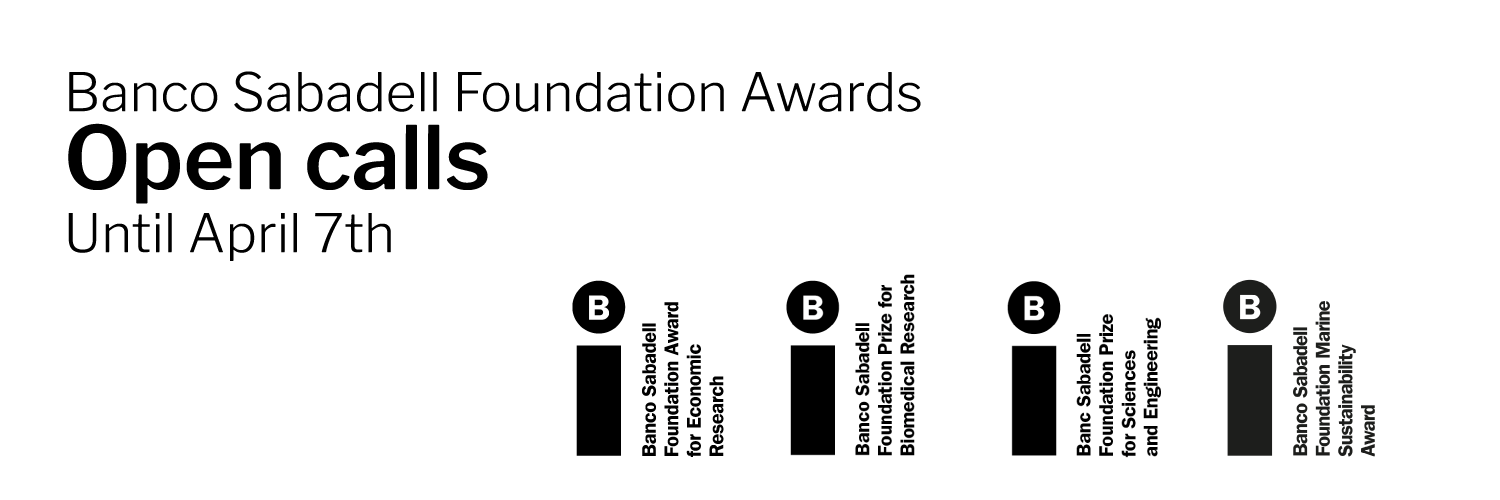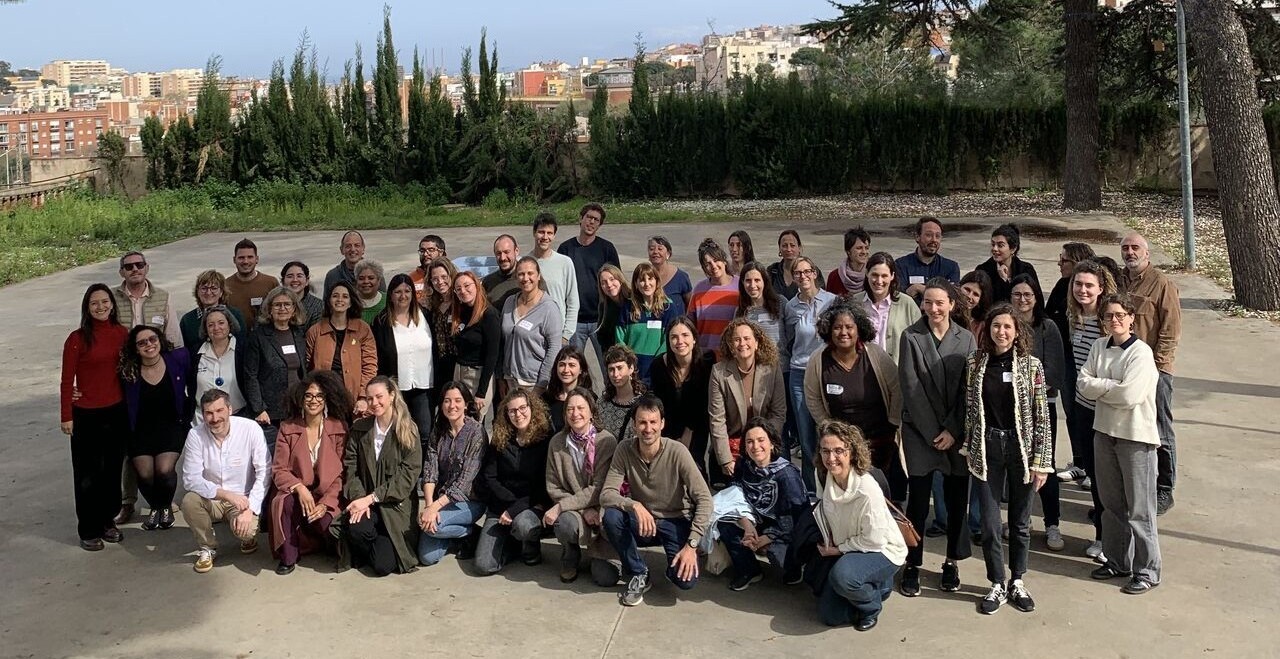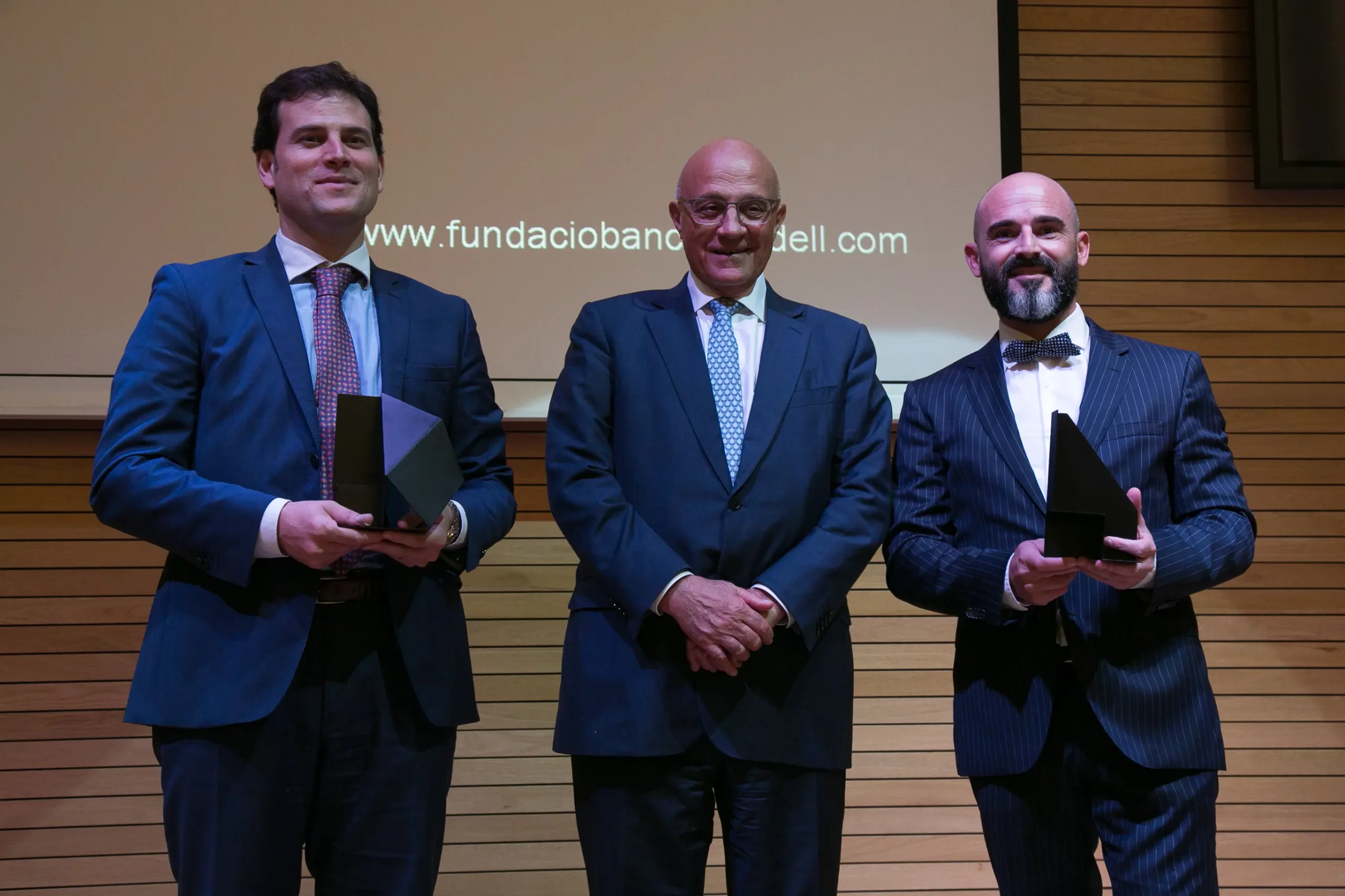
Chairman of Banco Sabadell, Josep Oliu, has awarded the XXI Banco Sabadell Foundation Award for Biomedical Research to Dr. Borja Ibánez for his contribution to the fight against cardiovascular diseases; and the I Banco Sabadell Foundation Award for Science and Engineering to Dr Romain Quidant, for his contributions in the field of nano-photonics, amongst which the development of his ‘nano’ tweezers is particularly noteworthy. These tweezers can be used to trap and move particles without modifying them.
The award ceremony took place at the Banco Sabadell headquarters in Sant Cugat del Vallès, and it was assisted by representatives from the scientific, academic, economic and political worlds, as well as investors with an interest in research projects and some previous award winners.
Both awards, which include a prize money of €50,000 each have the purpose of recognising the trajectory of young researchers who have developed their careers in Spain and who have promising future prospects.
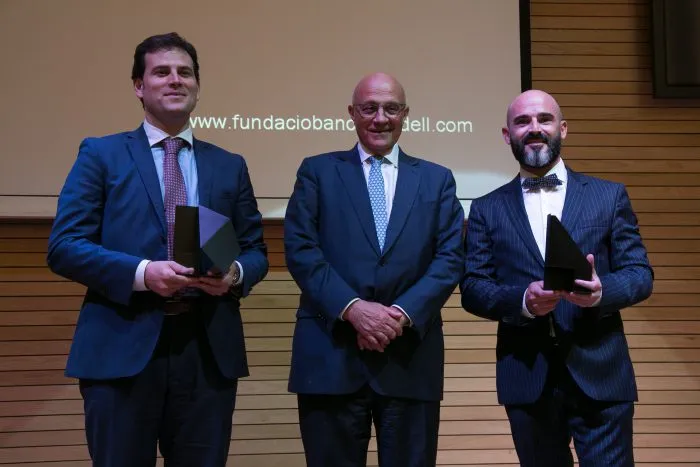
More information about the award winners
The panel of judges of this first edition of the Science and Engineering award, which has been supported by BIST (Barcelona Institute of Science and Technology) have chosen Dr Quidant due to his contributions in the field of nano-photonics, amongst which his ‘nano’ tweezers stand out. These tweezers can be used to trap and move particles without modifying them. His work on manipulating light on a nanometric scale using lasers and miniaturised antennas has opened up a new panorama in technology of the future. Dr Quidant is currently working at the Institute of Photonic Sciences in Barcelona (ICFO for its acronym in Spanish) in the field of nanoplasmonics, and since 2008 he has worked as a professor at ICREA and he is the leader of a tenured group at ICFO.
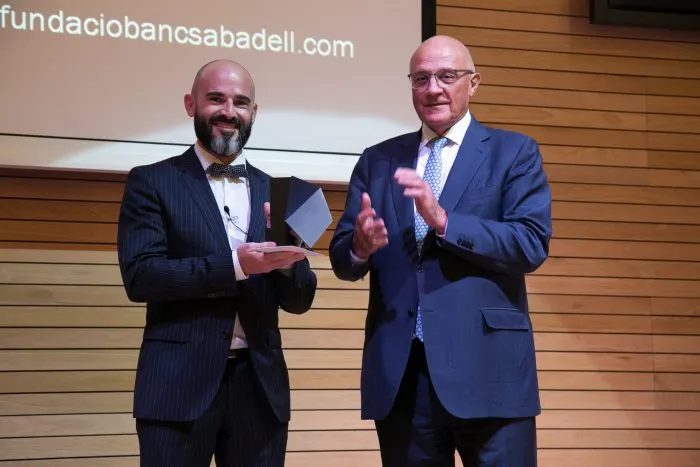
The panel of the Banco Sabadell Foundation Award for Biomedical Research has granted the award to Dr. Borja Ibáñez for his innovative contribution to the fight against cardiovascular diseases through the diffusion of basic and technological knowledge for the prevention and treatment of this disease. Dr Ibáñez combines scientific activities by leading a research group at the Cardiovascular Research Centre (CNIC for its acronym in Spanish), with clinical activity through his role as interventional cardiologist at the Hospital Universitario Fundación Jiménez Díaz. Furthermore, he is also the leader of a group at the recently inaugurated CIBER for cardiovascular illnesses (CIBERCV for its acronym in Spanish).
